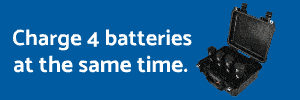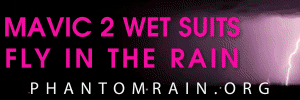The FAA used to issue an aviation safety letter years ago, I believe anyone with a pilots license, even in Canada, would get a copy each month. It was mainly aimed at inexperience pilots. Under the header it had a phrase something like one of the most dangerous times for an emerging pilot is around 100 hrs (student pilots typically get their private pilot licence at around 40 hrs). You've got your license and a few hours under your belt and you thing your an expert.
I've been flying drones since 2012 with the first Phantom, I had a couple of Inspires and a couple of Mavics. I have several hundred hours of drone time according to Airdata (Healthy Drones) which I joined in 2015. I've had some hairy moments, a few minor incidents. I consider myself cautious. I have past the Canadian Advanced Pilot Certificate in July 2019 and operate drones several times a week.
I always follow my preflight checklist but in cases where it all seems to be a straight forward, a simple operation, the checklist gets a quick skim, confirm the Home point, as I did a couple of days ago when I was photographing a commercial building roof. A saw the trees and hydro cables (already identified on Google Earth prior) but the sun was bright and low on the horizon and in my face. Up went the drone, a few jiggles to confirm the controls were operating correctly then higher .........then I saw it just in the nick of time. A fine wire strung between two tall lamp posts (high lamps to illuminate a car park). There was no indication that the vertical sensor add picked up the wire, highly unlikely, it was just luck that the wire flicker in the sun as the drone got within inches. Even now that I knew it was there, it was very hard to see. It wasn't a thick electric cable, it must have had a flag or banner hung on it at some time. Just another reminder that experience doesn't make you immune to hazards. I am now back to going down every step of the checklist thoroughly, no exceptions.
I've been flying drones since 2012 with the first Phantom, I had a couple of Inspires and a couple of Mavics. I have several hundred hours of drone time according to Airdata (Healthy Drones) which I joined in 2015. I've had some hairy moments, a few minor incidents. I consider myself cautious. I have past the Canadian Advanced Pilot Certificate in July 2019 and operate drones several times a week.
I always follow my preflight checklist but in cases where it all seems to be a straight forward, a simple operation, the checklist gets a quick skim, confirm the Home point, as I did a couple of days ago when I was photographing a commercial building roof. A saw the trees and hydro cables (already identified on Google Earth prior) but the sun was bright and low on the horizon and in my face. Up went the drone, a few jiggles to confirm the controls were operating correctly then higher .........then I saw it just in the nick of time. A fine wire strung between two tall lamp posts (high lamps to illuminate a car park). There was no indication that the vertical sensor add picked up the wire, highly unlikely, it was just luck that the wire flicker in the sun as the drone got within inches. Even now that I knew it was there, it was very hard to see. It wasn't a thick electric cable, it must have had a flag or banner hung on it at some time. Just another reminder that experience doesn't make you immune to hazards. I am now back to going down every step of the checklist thoroughly, no exceptions.




 ...Fly safe everyone.
...Fly safe everyone.





